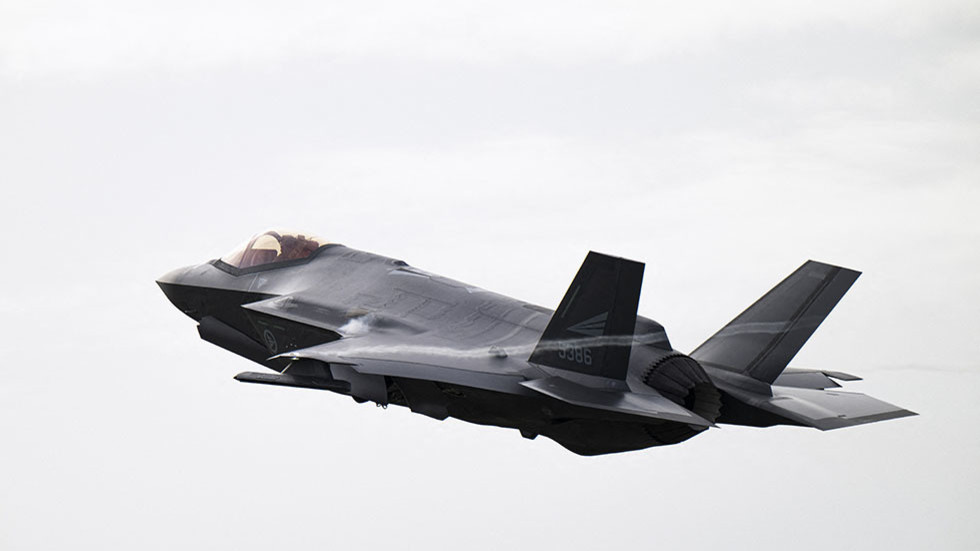
Singapore’s defense chief earlier claimed that Washington had used the jets to spy on Russian surface-to-air missile sites

A F-35 jet takes off from Orland Air Base during The Arctic Fighter Meet exercises in Brekstad, west of Trondheim, Norway, on August 23, 2023. © Jonathan NACKSTRAND / AFP
The US has denied flying F-35s over Ukraine after Singapore’s Defense Minister Ng Eng Hen claimed that the advanced fighter jets were being used to monitor Russian troops in the region.
Eng Hen made the remarks last Wednesday while speaking in the national parliament about the importance of long-term planning in the defense industry. He in particular mentioned that Singapore was closely evaluating the US-made F-35, especially when it comes to its use in real-world conditions.
He noted that the US has used the F-35 not only to target Islamic State (IS, formerly ISIS) terrorists in the Middle East but also “to locate and identify surface-to-air missile sites of Russian units in Ukraine,” adding that this reconnaissance was later shared with NATO members. He did not say whether an F-35 ever entered Ukrainian air space or if flights were carried out over NATO territory.
On Monday, a spokesperson for the Pentagon declined to comment on the minister’s remarks but stressed that “I can confirm that the US does not fly F-35s in Ukraine.”

Read more
Last March, the website C4ISRNET reported, citing Colonel Craig Andrle, the commander of 388th Fighter Wing, that the US used F-35 to gather reconnaissance on “threats” in Ukraine and the Russian exclave of Kaliningrad. The fighters “were able to locate and identify surface-to-air missile sites and pass that information to the rest of the coalition,” the article said.
However, while Andrle stressed that F-35 could be a formidable war asset without firing a single shot due to its intelligence-gathering capabilities, it sometimes struggled to snoop on Russian positions. The colonel recalled that the F-35 had failed to identify a Russian S-300 missile system because it was potentially “operating in a war reserve mode that we haven’t seen before.”
Since the Ukraine conflict began in February 2022, NATO has increased its air presence in Eastern Europe, deploying additional fighters and surveillance aircraft. The US-led military bloc is using Airborne Warning and Control System (AWACS) aircraft equipped with long-range radars to conduct regular patrols.
Kremlin spokesman Dmitry Peskov said last year that NATO countries were acting as if they were Russia’s “enemies,” noting that their reconnaissance is operating around the clock against Moscow.
Meanwhile, the West is also planning to provide Ukraine with F-16 fighter jets, which are widely expected to arrive later this year. Russian Foreign Ministry spokeswoman Maria Zakharova has warned that those aircraft would be “legitimate targets” for the Russian military, adding that such a move only increases the risk of a direct clash between Russia and NATO.




